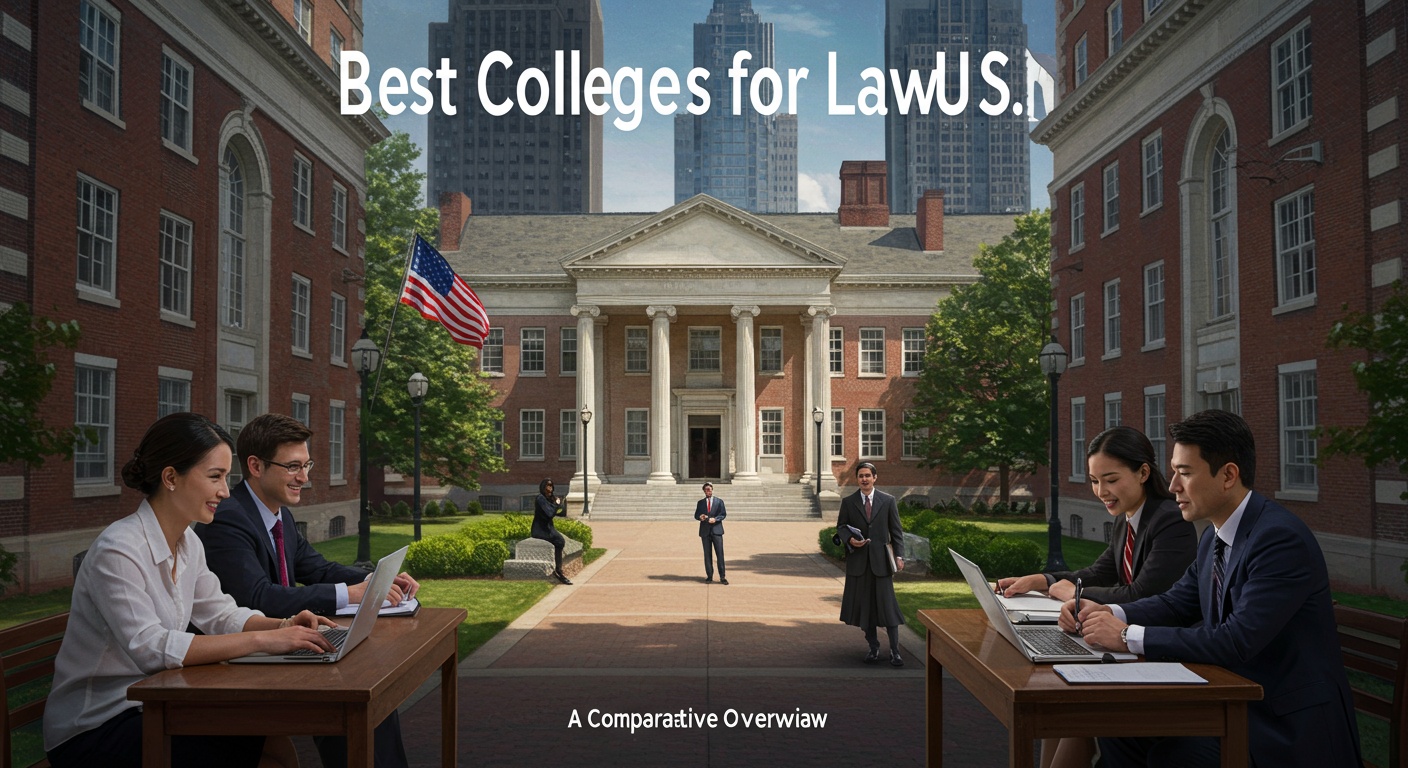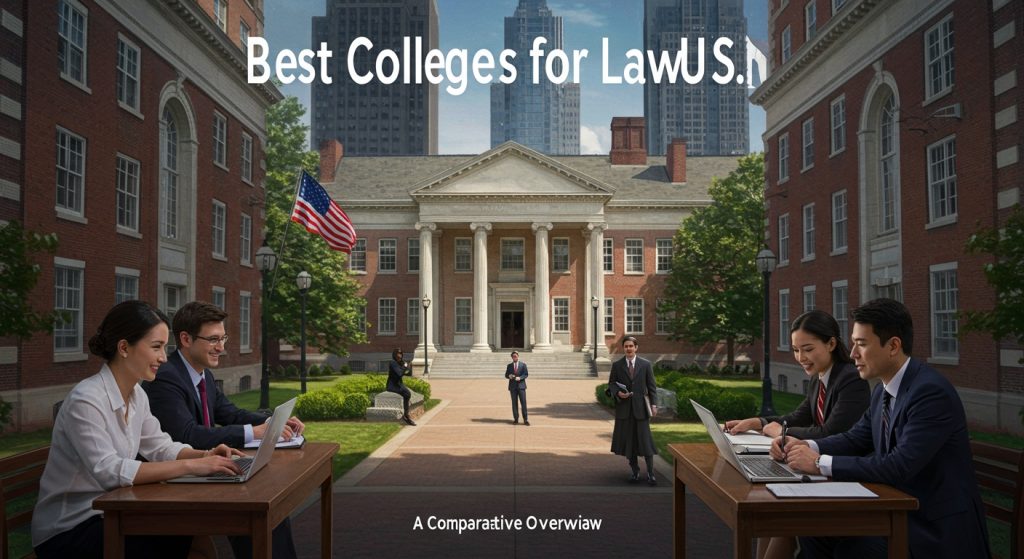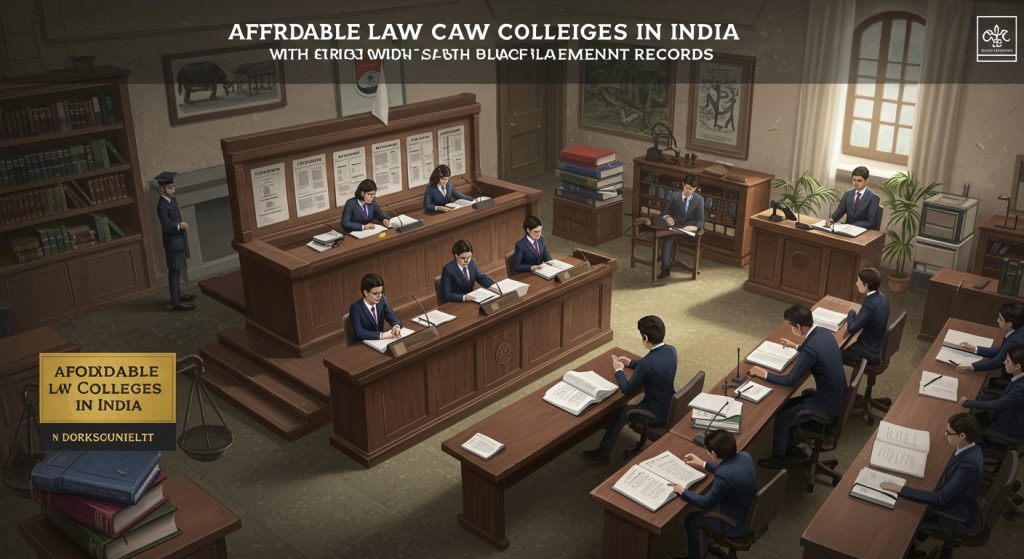Aspiring legal eagles face a daunting choice: navigating the complex landscape of American law schools. The current legal market, demanding specialized skills in areas like artificial intelligence law and cybersecurity regulations, necessitates a strategic approach to legal education. This comparative overview cuts through the noise by focusing on crucial factors influencing career trajectory, from bar passage rates and employment statistics to specialized programs and faculty expertise. We will unpack the varying strengths of institutions like Yale, renowned for its constitutional law focus, versus Stanford, a hub for technology law innovation. Evaluating metrics like student-faculty ratios, clinical opportunities. Alumni networks provides a comprehensive understanding of each school’s unique value proposition, empowering you to make an informed decision.

Defining the Gold Standard: What Makes a Top Law School?
Choosing the right Law school is a pivotal decision that can shape your entire legal career. But what exactly defines a “top” Law school? It’s more than just a high ranking in a magazine. Several factors contribute to a school’s reputation and its ability to prepare students for the rigors of the legal profession. Faculty Reputation and Scholarly Impact: A Law school’s faculty is its intellectual heart. Look for professors who are leading scholars in their fields, actively publishing research. Influencing legal thought. Prestigious awards, appointments to influential committees. Frequent citations in legal journals are all indicators of faculty excellence. Bar Passage Rates: A high bar passage rate is a direct reflection of a Law school’s ability to equip its students with the knowledge and skills necessary to succeed on the bar exam. This is a crucial metric, as passing the bar is essential to practicing Law. Employment Statistics: Where do graduates end up after graduation? A top Law school will have strong placement rates in prestigious Law firms, government agencies, public interest organizations. Judicial clerkships. Pay attention to the types of jobs graduates secure and their starting salaries. Curriculum and Specialization Opportunities: Does the Law school offer a diverse curriculum that covers a wide range of legal topics? Are there opportunities to specialize in areas of particular interest, such as environmental Law, intellectual property Law, or criminal Law? Look for schools that offer clinics, externships. Research opportunities that allow students to gain practical experience in their chosen field. Resources and Facilities: A top Law school will have state-of-the-art facilities, including a comprehensive Law library, advanced technology in classrooms. Dedicated spaces for student collaboration and research. They should also provide ample resources for career services, academic support. Student well-being. Location and Networking Opportunities: The location of a Law school can significantly impact your networking opportunities. Schools located in major legal markets, such as New York City or Washington, D. C. , offer students access to a wider range of internships, externships. Potential employers. Alumni networks are also crucial, as they can provide invaluable mentorship and career connections. Diversity and Inclusion: A diverse and inclusive Law school community enriches the learning experience and prepares students to work effectively in an increasingly diverse world. Look for schools that actively recruit and support students from diverse backgrounds and perspectives.
The Ivy League Powerhouses: Harvard, Yale. Columbia
When discussing top Law schools, the Ivy League institutions invariably dominate the conversation. Harvard, Yale. Columbia consistently rank among the best Law schools in the nation. For good reason. Harvard Law School (HLS): Harvard Law School boasts a legendary faculty, a vast alumni network. Unparalleled resources. The school’s curriculum is rigorous and comprehensive, covering a wide range of legal subjects. HLS is particularly renowned for its strength in constitutional Law, international Law. Corporate Law. Harvard’s emphasis on Socratic method and its case-based teaching style are hallmarks of its legal education. Real-world example: Many Supreme Court Justices have graduated from Harvard Law School, highlighting the school’s influence on the highest levels of the legal profession. Yale Law School (YLS): Yale Law School is known for its emphasis on legal theory, public interest Law. Its relatively small class sizes. Yale fosters a close-knit community and encourages students to pursue their intellectual passions. YLS has a strong focus on constitutional Law, administrative Law. Criminal Law. It is well known for its unconventional grading system, which does not include traditional letter grades. Real-world example: Yale Law School is a prominent source of legal scholars and academics who shape legal thinking and policy. Columbia Law School (CLS): Columbia Law School, located in New York City, offers students unparalleled access to the legal, financial. Cultural hub of the world. CLS is particularly strong in corporate Law, intellectual property Law. International Law. The school’s location provides students with numerous opportunities for internships and externships in leading Law firms and corporations. Real-world example: Columbia Law School’s location in New York City allows students to easily attend court proceedings and interact with leading legal professionals.
Beyond the Ivies: Stanford, University of Chicago. NYU
While the Ivy League schools are undeniably prestigious, several other institutions also offer exceptional legal education. Stanford, the University of Chicago. NYU consistently rank among the top Law schools in the US. Stanford Law School (SLS): Stanford Law School, located in the heart of Silicon Valley, is known for its innovative approach to legal education and its strong ties to the technology industry. SLS is particularly strong in intellectual property Law, cyber Law. Environmental Law. The school emphasizes interdisciplinary learning and encourages students to collaborate with students from other disciplines, such as engineering and business. Real-world example: Stanford Law School’s close proximity to Silicon Valley has made it a hub for legal innovation and technology Law. University of Chicago Law School (UChicago Law): The University of Chicago Law School is renowned for its rigorous academic environment and its emphasis on economic analysis of Law. UChicago Law is particularly strong in corporate Law, antitrust Law. Constitutional Law. The school’s faculty includes leading scholars in various fields of Law. Its alumni network is highly influential. Real-world example: The University of Chicago Law School’s focus on economic analysis of Law has shaped legal scholarship and policy in numerous areas. New York University School of Law (NYU Law): NYU Law, located in the vibrant Greenwich Village neighborhood of New York City, offers a diverse and dynamic learning environment. NYU Law is particularly strong in international Law, public interest Law. Tax Law. The school’s location provides students with unparalleled access to legal, political. Cultural institutions. Real-world example: NYU Law‘s Center on International Cooperation is a leading think tank on global governance and international security.
Public Law School Powerhouses: UC Berkeley, University of Michigan. University of Virginia
While private Law schools often receive the most attention, several public universities also offer exceptional legal education at a more affordable cost. UC Berkeley, the University of Michigan. The University of Virginia are consistently ranked among the top public Law schools in the nation. UC Berkeley School of Law (Berkeley Law): UC Berkeley School of Law, located in the San Francisco Bay Area, is known for its progressive values and its commitment to social justice. Berkeley Law is particularly strong in environmental Law, criminal Law. Public interest Law. The school’s location provides students with access to a diverse range of legal opportunities, from Silicon Valley tech companies to non-profit organizations. Real-world example: UC Berkeley School of Law‘s clinical programs provide students with hands-on experience representing underserved communities and advocating for social change. University of Michigan Law School (Michigan Law): The University of Michigan Law School, located in Ann Arbor, is a highly regarded public Law school with a strong emphasis on legal scholarship and teaching. Michigan Law is particularly strong in international Law, corporate Law. Constitutional Law. The school’s faculty includes leading scholars in various fields of Law. Its alumni network is extensive. Real-world example: The University of Michigan Law School’s Rule of Law in China Program promotes the development of legal institutions in China. University of Virginia School of Law (UVA Law): The University of Virginia School of Law, located in Charlottesville, is known for its collegial atmosphere and its strong focus on professional development. UVA Law is particularly strong in corporate Law, public interest Law. Constitutional Law. The school’s Honor System fosters a culture of trust and integrity. Real-world example: The University of Virginia School of Law‘s Mortimer Caplin Public Service Center provides students with opportunities to engage in pro bono legal work and serve the community.
Beyond Rankings: Finding the Right Fit for You
While rankings can be a useful starting point, they shouldn’t be the sole factor in your Law school decision. The “best” Law school for you depends on your individual goals, interests. Learning style. Consider Your Career Goals: What type of Law do you want to practice? What kind of employer do you want to work for? Different Law schools have different strengths and connections. If you’re interested in corporate Law, you might want to focus on schools with strong corporate Law programs and connections to major Law firms. If you’re interested in public interest Law, you might want to focus on schools with strong public interest programs and clinical opportunities. Visit and Connect with Current Students: If possible, visit the Law schools you’re considering. Talk to current students and faculty members to get a feel for the school’s culture and academic environment. Attend a class or a moot court session to see how the school’s teaching methods align with your learning style. Evaluate the School’s Culture and Community: Do you feel comfortable and welcome on campus? Do you see yourself fitting in with the student body? A supportive and collaborative learning environment can significantly enhance your Law school experience. Assess the Cost and Financial Aid Options: Law school is a significant investment. Consider the cost of tuition, fees. Living expenses. Research the school’s financial aid options. Look for schools that offer scholarships, grants. Loan repayment assistance programs. Don’t Overlook Location: The location of a Law school can impact your career opportunities and your overall quality of life. Consider whether you want to live in a major city, a college town, or a more rural area. Also, consider the proximity of the school to your desired job market. By carefully considering these factors, you can choose a Law school that will provide you with the knowledge, skills. Connections you need to succeed in the legal profession.
Conclusion
Choosing the right law school is a marathon, not a sprint. We’ve explored various institutions, dissecting their strengths and specialties. As an expert, I’ve seen too many students focus solely on rankings, neglecting personal fit. Don’t fall into that trap. Instead, deeply consider your desired area of law, preferred learning environment. Financial realities. A common pitfall is underestimating the importance of networking. Attend law school fairs, connect with alumni. Visit campuses. These experiences provide invaluable insights that rankings simply can’t capture. Remember, your legal education is an investment in your future. By prioritizing fit and building connections, you’ll pave the way for a fulfilling and successful legal career. Embrace the journey with confidence and determination. You’ve got this!
More Articles
Public vs. Private Options for Law Degree
Top Universities For Law In The UK: A Ranking
Affordable Law Colleges In India With Quality Education
FAQs
Okay, so I’m aiming for law school! What even makes a law school ‘the best’?
Great question! It’s not just about prestige, though that plays a part. ‘Best’ is subjective and depends on your goals. Things like bar passage rates, job placement stats (especially in your dream field), faculty reputation, clinical opportunities. Even the school’s location all factor in. Also, consider the school’s culture – do you thrive in a cutthroat environment or a more collaborative one?
Everyone always talks about Yale and Harvard. Are they really that much better than other top law schools?
They’re undeniably fantastic and consistently rank high. Their alumni networks are incredibly powerful. The opportunities they offer are vast. But, ‘better’ is relative. Schools like Stanford, Columbia, NYU. The University of Chicago are also powerhouses. They might specialize in specific areas that Yale or Harvard don’t emphasize as much. Don’t automatically assume Ivy League is the only path!
Clinical programs keep popping up. What are they. Why do they matter for law school?
Think of clinical programs as law school’s version of an apprenticeship. You get to work on real cases, with real clients, under the supervision of experienced attorneys (usually professors). It’s amazing for gaining practical skills, building your resume. Figuring out what kind of law you actually enjoy. The stronger the clinical programs, the better prepared you’ll be for practice.
How crucial is the LSAT score when applying to these top schools? Be honest!
Brutally honest? Extremely crucial. Along with your GPA, it’s a major indicator of your academic abilities. Top schools are highly competitive. They use the LSAT to compare applicants from different undergraduate institutions. Aim high and prep strategically!
What if I’m interested in a specific area of law, like environmental law or intellectual property? Should that change where I apply?
Absolutely! Some schools are renowned for their strengths in specific areas. For instance, UC Berkeley often shines in environmental law, while Stanford has a strong reputation for law and technology. Research schools that align with your interests. Their curriculum, faculty expertise. Available resources will be tailored to that field.
Okay, realistically, what’s the deal with the cost? Law school is expensive!
You’re not wrong! It’s a significant investment. Consider factors like tuition, living expenses in the school’s location. Potential loan repayment plans. Look into scholarships, grants. Financial aid options. Don’t be afraid to negotiate with schools that offer you admission – sometimes they’ll sweeten the deal with more aid.
Besides rankings and stats, what’s one piece of advice you’d give someone choosing a law school?
Visit the schools you’re seriously considering, if possible! Talk to current students, sit in on a class. Get a feel for the campus culture. A school might look amazing on paper. You might not click with it in person. Your gut feeling matters a lot!



